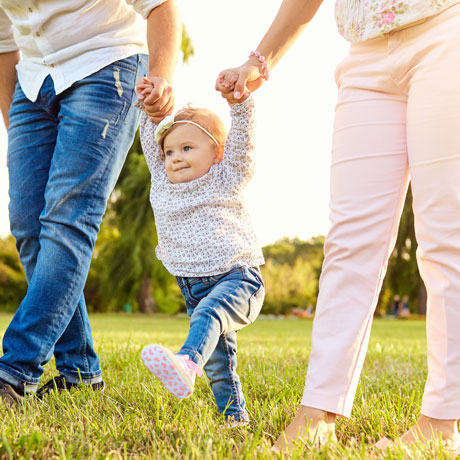 Positive peer relationships help children develop good social and emotional skills, confidence, empathy, a positive self-image and much more. Yet, as a young child, making new friends can be an intimidating and unfamiliar challenge. Here, the childcare professionals at Celebree Learning Centers discuss ways to help school age children create and maintain positive peer relationships.
Positive peer relationships help children develop good social and emotional skills, confidence, empathy, a positive self-image and much more. Yet, as a young child, making new friends can be an intimidating and unfamiliar challenge. Here, the childcare professionals at Celebree Learning Centers discuss ways to help school age children create and maintain positive peer relationships.
Help Your Child Form a Strong Sense of Trust
A major component of developing positive peer relationships is the ability to trust others. As young children learn almost all they know of trust from their parents and caretakers, this means you have a responsibility to create a solid foundation of trust upon which they can rely. Much of this development begins in infancy: by responding to your children when they cried, whether for food, attention or other needs, you were helping your child learn to trust others. This foundation can continue to be reinforced as your child grows to school age by continuing to meet their needs. Creating a stable home environment goes a long way to helping children feel comfortable relying on and trusting others.
Emphasize the Importance of Manners
Teaching children good manners will help them to model this behavior at school, thus allowing them to make friends. Conscious Discipline is an important way to reinforce helpful behavior choices: instead of punishing children for hurtful behavior choices, parents work with their children to problem solve other outcomes or solutions to social problems so they are able to make a more helpful choice next time. Conscious discipline also helps children learn social and emotional skills by giving them the opportunity to understand how certain behaviors positively or negatively impact themselves and others.
Model Useful Friend-Making Skills
Children are highly influenced by their parent’s words, actions and behaviors, and will model them in other environments. Modeling helpful behaviors, such as sharing, waiting turns, using polite phrases like “please” and “thank you” and cooperating with others, will help your child retain and exhibit those behaviors themselves. Role playing specific social situations can be a valuable way of helping children improve their social skills, as it can help boost your child’s confidence when confronted with a specific scenario in real life.
Schedule Supervised Play
Supervised play dates are a great way for your child to meet new children, practice their social skills and explore new social situations, while still maintaining a supervisory presence. Provide activities for children to enjoy together, such as building a fort, starting a game of hide-and-go-seek, playing a board game or making crafts or models—these are all activities that require children to demonstrate helpful and cooperative social behaviors. If a conflict should arise, allow children time to work it out themselves—only intervening if the situation escalates past their ability to resolve it.
How Celebree Learning Centers Can Help
Celebree Learning Centers is committed to providing a safe and stable environment that promotes the understanding and practice of social skills and abilities. With the supportive guidance of dedicated instructors, children are able to interact in positive and productive ways, creating friendships and learning conflict management. If you are interested in enrolling your child in one of our educational programs that supports social development, contact us today to schedule a tour of your local Celebree Learning Center!

